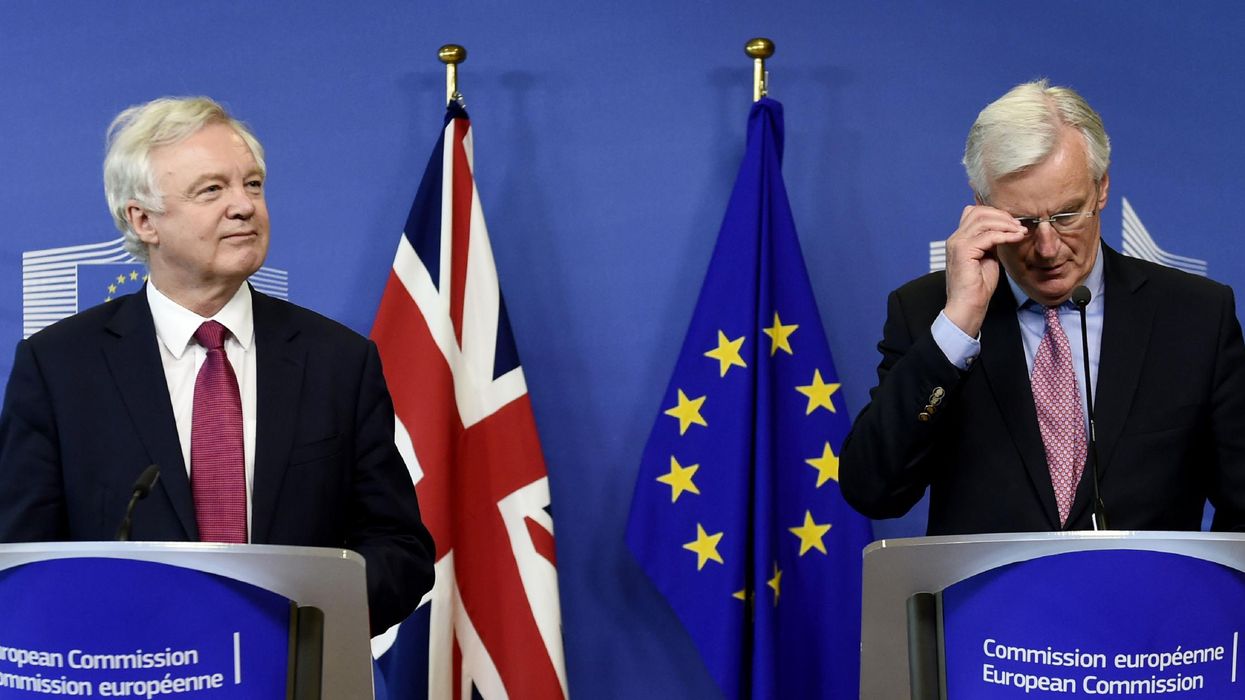
A former UK negotiator to the EU has written an article for the London School of Economics which argues that the UK's starting point for Brexit negotiations is "disastrous".
Steve Bullock is a former negotiatiator and worked at the UK Representation to the EU between 2010 and 2014 - it was there he negotiated several EU regulations for the UK in EU Council working groups.He's also worked for the European Commission.
He knows a thing or two about negotiations in Europe.
In his article, he started by addressing the "difficult woman" moniker and whether it's a good thing or a bad thing:
Being 'tough' and being 'difficult' are not the same thing. Being tough can work, but only if deployed sparingly at strategic points in negotiations.
Being difficult for difficult’s sake never works.
It simply breaks trust and creates resentment leading to a justifiable unwillingness in partners to compromise.
He also addressed the UK government's attitude to negotiations thus far:
Successful negotiation in the EU is not, contrary to popular belief, about thumping the table and demanding you get everything you want for nothing in return.
It’s also not about undermining your opposite numbers (oppos in Brussels-speak), or insulting their intelligence by making outlandish claims.
Yet, in preparing for Brexit negotiations, the UK government has done all of these things with, it seems, gusto and pride.
As Bullock explains, every negotiator must know their opposition, their red lines and what they can gently cajole the others into accepting. It's a complex process that demands concessions and flexibility, which he argues the UK government has yet to demonstrate to the public.
The UK government first tried to divide the EU27, and then, when that didn’t work, set about deliberately breeding resentment and mistrust.
The balance of power is such that the EU27 hold almost all the cards, but the government seems in a state of denial about this.
The rhetoric then arrived of "no deal is better than a bad deal", which is demonstrably untrue.
The UK walking away with no deal would cost both parties dearly, and no deal would cost the UK much more than it would the EU. The rhetoric has fooled very few and decreased the UK's credibility, he argues.
Just this week Foreign Secretary Boris Johnson said in the Commons that the EU can 'go whistle' for a final payment from the UK on its departure from the union, describing the proposed cost as "extortionate".
So what does he conclude?
That the UK is likely to walk out of negotiations, because the chances of reaching any deal in 21 months are minimal.
That the government is too "bloody difficult" to get the best result for the country.
This frank view was received with much sad agreement on Twitter:
Pro-Brexit accounts have yet to seize on it, but that may be because they're not reading the latest LSE blogs.
As we know, they've had enough of experts.
More: Show this chart to anyone who says Brexit is the 'will of the British people'













